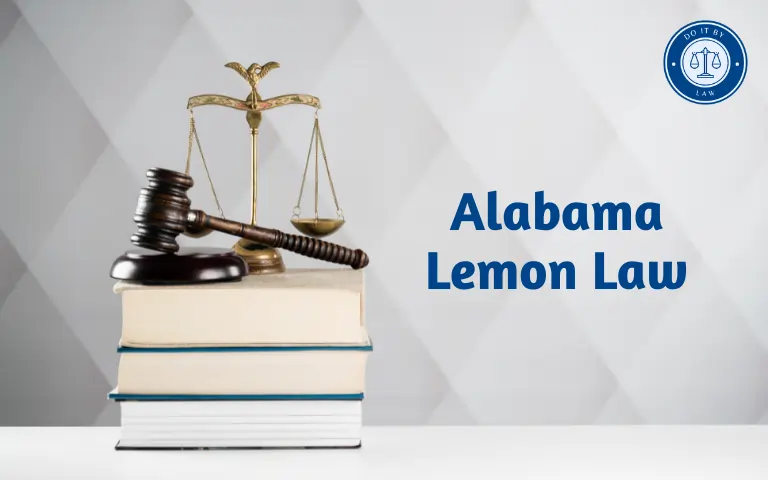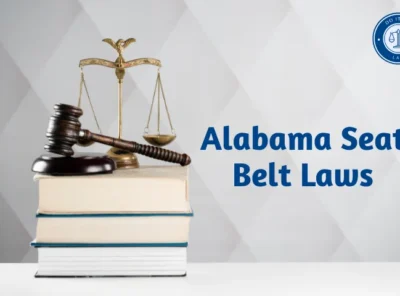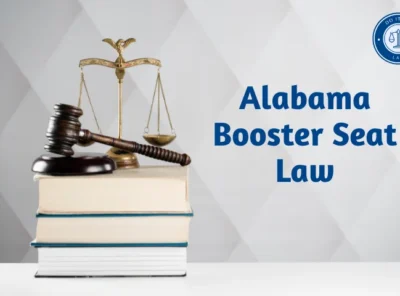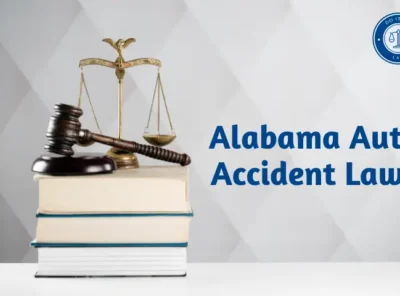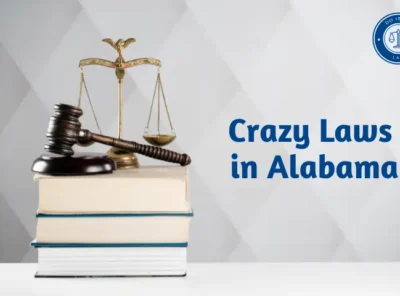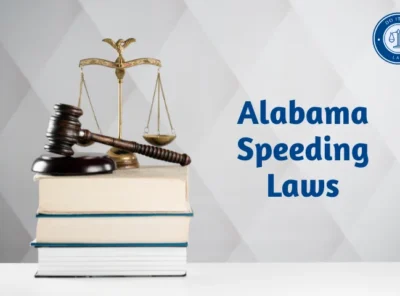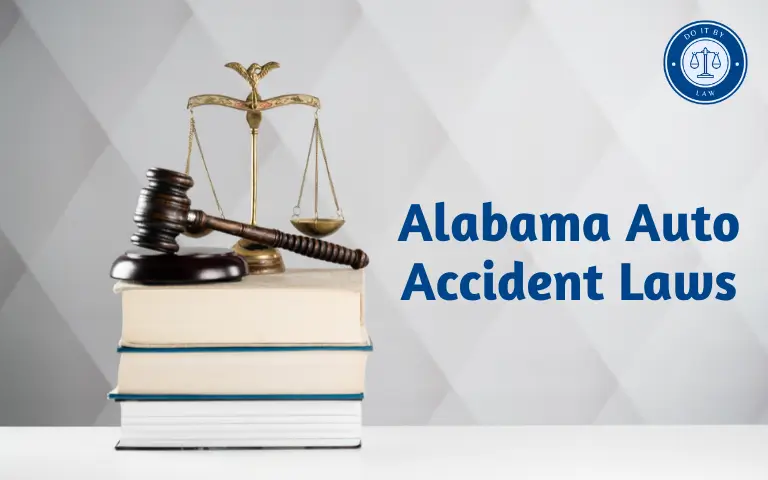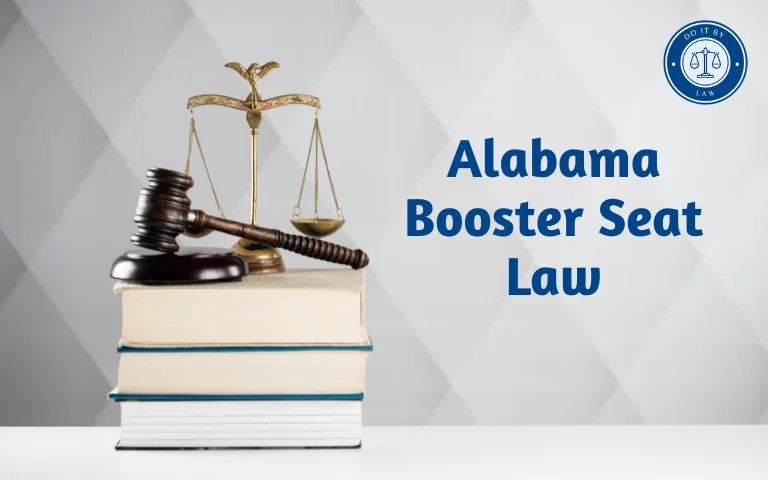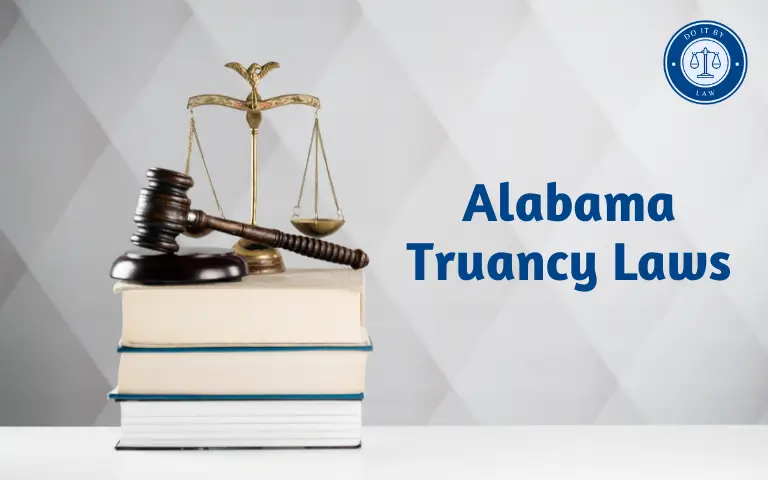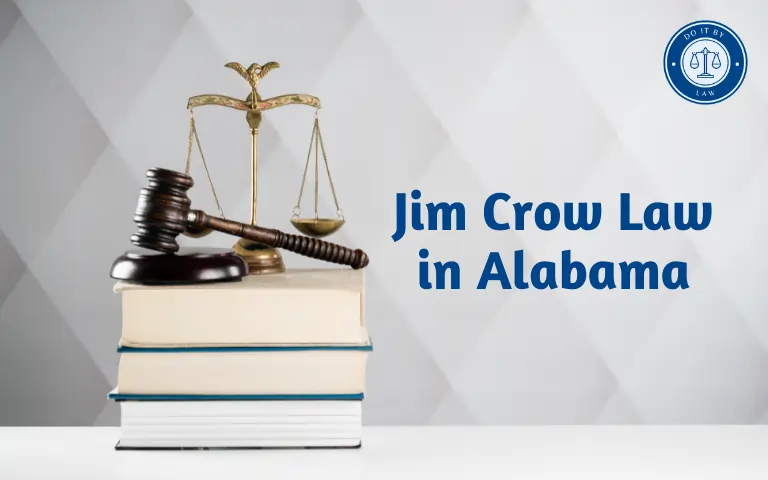Alabama Lemon Law: What You Need to Know
The Alabama Lemon Law, as outlined in Alabama Code Section 8-20A-1 et seq., provides protection for consumers who purchase or lease a defective vehicle, commonly referred to as a “lemon.”
This law is designed to ensure that manufacturers are held accountable for their products and that consumers have the right to repairs, replacements, or refunds for vehicles that do not meet the terms of their warranties.
The scope of the Alabama Lemon Law varies, and it is essential for consumers to understand the specific requirements and remedies available to them under this law.
Why Lemon Law?
Lemon laws are regulations designed to protect consumers who purchase products that turn out to be defective—commonly referred to as “lemons.” These laws provide remedies to consumers by requiring manufacturers or dealers to take specific actions when a product fails to meet quality or performance standards. Let’s delve into the details:
- Lemon Laws for Vehicles:
- Scope: Lemon laws primarily apply to motor vehicles, such as cars, trucks, and motorcycles.
- Purpose: They aim to compensate consumers for products that repeatedly fail to meet quality and performance standards.
- Criteria: If a new vehicle has a significant defect that the manufacturer cannot repair within a reasonable amount of time, lemon laws come into play.
- Buy-Back Obligation: When repairs cannot be completed within the specified time frame, the manufacturer becomes obligated to buy back the defective vehicle.
- State-Specific: Every U.S. state and the District of Columbia has its own lemon law, with varying criteria.
- Beyond Warranties: Lemon laws go beyond manufacturer warranties by providing remedies that include buy-back provisions.
- Coverage: Some states extend lemon laws to used vehicles as well.
- Other Lemon Laws:
- Non-Vehicle Products: While lemon laws are most commonly associated with vehicles, they can also cover other goods like appliances, electronics, and boats.
- State Variations: Each state’s lemon law may have specific provisions and coverage.
- Pet Purchases: Surprisingly, some states even have lemon laws that apply to pet purchases!
Lemon laws serve as a safety net for consumers, ensuring that they are not stuck with faulty products that fall short of promised quality or usefulness.
When Alabama Lemon Law?
The Alabama Lemon Law provides consumer protection for those who purchase motor vehicles that turn out to be defective. Let’s explore the key points:
- Eligibility:
- The law covers motor vehicles used on highways, excluding motor homes or vehicles weighing over 10,000 pounds.
- Eligible consumers include purchasers (other than resale) of new or previously untitled motor vehicles primarily used for personal, family, or household purposes. Lessees may also be covered.
- Time Periods:
- Filing Claims: Consumers have three years from the original delivery date to file claims.
- First Occurrence or Notice: During the lemon law rights period, which is either one year after original delivery or 12,000 miles of operation.
- Reasonable Repair Attempts: Manufacturers must repair nonconforming conditions within 24 months following delivery or 24,000 miles, whichever occurs first.
- Presumption:
- If a nonconforming condition has been subject to three or more repair attempts during the lemon law rights period, and the same condition persists, or if the vehicle is out of service for a cumulative total of 30 calendar days, the presumption applies.
- The manufacturer must be notified before bringing a civil action.
- Final Opportunity to Repair:
- If the presumption is met, the manufacturer must contact the consumer within 7 days of receiving notice and repair the vehicle within 14 days after delivery to the repair facility.
- Refund Calculation:
- Refunds are based on the miles driven by the consumer before the first report of nonconformity, divided by 100,000 and multiplied by the purchase price.
Remember, the Alabama Lemon Law aims to ensure that consumers are not stuck with faulty vehicles that fail to meet warranty standards
Who the Alabama Lemon Law Applies To
The Alabama Lemon law protects consumers who purchase or lease new vehicles that ends up having significant defects impacting use, value, or safety and which the manufacturer fails to successfully repair. The law applies to:
Eligible Vehicles:
- New or previously untitled motor vehicles: This includes cars, trucks, SUVs, and minivans.
- Used primarily for personal, family, or household purposes: Excludes vehicles purchased primarily for commercial use.
- Vehicles under 10,000 pounds Gross Vehicle Weight Rating (GVWR): Excludes motorhomes and larger vehicles.
- Vehicles purchased within the coverage period: Typically one year or 12,000 miles, whichever comes first.
Non-Eligible Vehicles:
- Motorhomes: Recreational vehicles and similar large motor vehicles are not covered.
- Vehicles over 10,000 pounds GVWR: Trucks and other heavy-duty vehicles exceeding this weight limit are excluded.
- Vehicles purchased primarily for commercial use: Cars, trucks, vans, etc., used for business purposes don’t qualify.
- Vehicles outside the coverage period: Defects reported after the one-year/12,000-mile window generally fall outside the law’s scope.
Additional Notes:
- Even if your vehicle falls within the eligible category, you must still meet the specific requirements for a “lemon” (substantial defect, reasonable repair attempts).
- Consult with an attorney for specific advice regarding your vehicle’s eligibility and potential lemon law claim.
Overall, the lemon law alabama is designed to protect any consumer, business, or government agency that ends up with a defective new vehicle purchased in the state that the manufacturer fails to repair appropriately under warranty.
Alabama lemon law timeline
The Alabama lemon law timeline follows several key stages:
Initial Period:
- 1 year or 12,000 miles (whichever comes first): This is the “lemon law coverage period” where you must report any substantial defects to the manufacturer.
Repair Attempts:
- 3 or more repair attempts for the same problem: This could involve multiple visits to the dealership or authorized repair facility.
- 6 or more repair attempts for different problems: This indicates a pattern of ongoing issues.
- Vehicle out of service for repair for a total of 30 days or more: This signifies significant disruption to your vehicle usage.
After Reasonable Repair Attempts:
- Informal Dispute Resolution: You can attempt to negotiate a settlement with the manufacturer directly.
- Arbitration: This involves a neutral third party resolving the dispute, often faster and cheaper than court.
- Small Claims Court: If a settlement or arbitration isn’t reached, you can sue the manufacturer in court.
Time Limits:
- 3 years: You have 3 years from the original delivery date of the vehicle to file a lawsuit under the lemon law.
- Consult an attorney: Seek legal advice as soon as possible, as they can guide you through the specific timelines and deadlines relevant to your situation.
Alabama Lemon Law Presumption periods
Alabama’s Lemon Law has two key presumption periods that can simplify proving your case if met:
1. Repair Attempts:
- Presumption of a lemon: If one repair attempt during the warranty period (1 year/12,000 miles) falls within the following categories, the law presumes your vehicle is a lemon:
- At least three repair attempts for the same nonconformity.
- At least six repair attempts for different nonconformities.
- Importance: Meeting this presumption shifts the burden of proof to the manufacturer to demonstrate they can adequately repair the vehicle.
2. Out of Service:
- Presumption of a lemon: If the vehicle is out of service for repair for a cumulative total of 30 calendar days, with one of those days occurring during the warranty period, the law presumes your vehicle is a lemon.
- Exceptions: This presumption doesn’t apply if the manufacturer can prove the downtime was due to reasons beyond their control, like natural disasters or parts shortages.
- Importance: Similar to repair attempts, this presumption puts the onus on the manufacturer to prove they can fix the car within a reasonable timeframe.
Remember:
- These presumptions only apply during the lemon law coverage period.
- Meeting either presumption strengthens your case but doesn’t guarantee a win.
- Consulting an attorney familiar with Alabama Lemon Law is crucial for navigating the intricacies and maximizing your chances of success.
Alabama Lemon Law Replacement/Repurchase terms
Here’s a breakdown of the replacement/repurchase terms in the Alabama Lemon Law:
Eligibility:
- You must first meet the general lemon law requirements mentioned in Alabama Lemon Law Presumption periods, including having reported the defect during the warranty period and giving the manufacturer a reasonable opportunity to repair it (typically through the defined number of repair attempts or out-of-service days).
Your Choice:
- If the manufacturer is unable to conform the vehicle to the warranty after a reasonable opportunity, you have the option to choose between a replacement or repurchase.
Replacement:
- The replacement vehicle should be:
- Comparable in value and features to your original vehicle.
- New, not previously used.
- Subject to a new warranty.
- You will be responsible for any difference in price between the original and replacement vehicle.
- The manufacturer is not entitled to a deduction for mileage on your original vehicle when providing a replacement.
Repurchase:
- The manufacturer will:
- Repurchase your vehicle for the original purchase price, minus a reasonable allowance for mileage.
- Pay you any sales tax, license fees, and registration fees you paid when you bought the vehicle.
- You will need to return the vehicle to the manufacturer.
Important Points:
- The manufacturer cannot force you to choose a specific option (replacement or repurchase).
- The decision is yours entirely, and you should consider factors like your personal needs, the availability of comparable replacement vehicles, and any potential financial implications.
- It’s highly recommended to consult with an attorney specializing in lemon law to understand your options thoroughly and navigate the process effectively.
Used Vehicle Coverage
While the strongest protections in Alabama lemon law apply to new vehicles, the law does also cover certain used vehicle purchases:
- Used vehicles are covered if they were previously untitled and sold with a warranty from the manufacturer. This includes dealer certified pre-owned vehicles with remaining manufacturer warranty.
- The coverage timeframe is more limited compared to new vehicles. Used vehicles must show the nonconformity within 1 year from original delivery date to the consumer or before 12,000 miles, whichever occurs first.
- The number of repair attempts allowed before qualifying as a lemon is more restricted. Used vehicles get just one repair attempt for the same nonconformity, compared to new vehicles which get three attempts.
- Refund calculation accounts for mileage. The reasonable allowance deducted from refund amount is based on the purchase price times the mileage at first report of nonconformity, divided by 120,000 miles.
Penalties for Violating Alabama Lemon Law
If an auto manufacturer violates the provisions of Alabama lemon law, they can face penalties including:
- Having to repurchase defective vehicles at full refund value if they refuse consumers’ valid claims.
- Paying consumers’ attorney’s fees related to legal action taken under the lemon law if the consumer prevails.
- Potential fines of up to $1,000 levied by the state Attorney General for willful violations.
- Possible civil penalties if the manufacturer engages in unfair or deceptive trade practices violating the lemon law.
- Negative publicity and reputational damage if word spreads about a manufacturer defying the law.
While the financial penalties may not be severe in all cases, the bigger threat is the damaged reputation and loss of consumer trust from disregarding the Lemon law. Most manufacturers comply promptly to avoid backlash.
Recent Changes and Proposed Amendments to Alabama Lemon Law
While the core principles of Alabama’s Lemon Law haven’t undergone major revisions in recent years, there have been some developments and ongoing discussions about potential amendments:
Recent Changes:
- 2018: Clarification of the “reasonable number of repair attempts” provision, specifying that repairs must be within a two-year or 24,000-mile timeframe.
- 2022: Updates to the Alabama Attorney General’s website with more comprehensive information and resources on the Lemon Law.
Proposed Amendments:
- Expansion of coverage: Some proposals aim to broaden the scope of covered defects to include cosmetic issues or technological malfunctions.
- Increased repair attempts: Extending the minimum number of repair attempts before a lemon claim can be filed is also under consideration.
- Reduced timeframe for manufacturer response: Proposals suggest shortening the time manufacturers have to respond to repair requests.
- Consumer protection against arbitration: Preventing manufacturers from forcing consumers into arbitration for Lemon Law claims is another potential amendment.
Current Status: These proposed changes are still under discussion and haven’t been officially adopted into the law. The Alabama Legislature would need to pass and the Governor would need to sign any amendments for them to take effect.
Controversies and Challenges with Alabama Lemon Law
The Alabama Lemon Law, while designed to protect consumers, has its fair share of controversies and challenges:
Controversies:
- Limited scope of coverage: Critics argue the law only covers major mechanical issues, neglecting cosmetic defects, technological malfunctions, and interior problems. This leaves consumers with less protection than in other states with broader coverage.
- High repair attempt requirement: Four attempts for the same issue or six for any problems before filing a claim can be burdensome for consumers, especially if repairs are inconvenient or ineffective.
- Favorable treatment of manufacturers: The law gives manufacturers significant control over the repair process and the final decision on a lemon claim, potentially putting consumers at a disadvantage.
- Arbitration clauses: Some manufacturers include arbitration clauses in purchase agreements, forcing consumers into private arbitration instead of court proceedings, further limiting their rights.
Challenges:
- Burden of proof: Consumers bear the burden of proving the defect significantly impairs the vehicle’s use, value, or safety, which can be difficult and expensive, especially without legal assistance.
- Limited legal resources: Access to affordable legal representation can be challenging for some consumers, making it difficult to navigate the claims process and fight for their rights.
- Manufacturer resistance: Manufacturers may employ tactics to delay repairs, deny claims, or offer inadequate compensation, making it a lengthy and frustrating process for consumers.
- Lack of awareness: Many consumers are unaware of their rights under the Lemon Law, leaving them vulnerable to exploitation by manufacturers.
Potential Solutions:
- Expanding coverage to include cosmetic and technological defects.
- Lowering the repair attempt requirement for filing a claim.
- Limiting the manufacturer’s control over the repair process and claim decisions.
- Prohibiting the use of mandatory arbitration clauses in purchase agreements.
- Increasing public awareness about the Lemon Law and consumer resources available.
Overall:
While the Alabama Lemon Law offers some protection for consumers, it faces controversies and challenges that limit its effectiveness. Advocating for legal amendments and raising awareness about consumer rights are crucial steps in strengthening the Lemon Law and ensuring fairer outcomes for car owners in Alabama.
Alabama Lemon Law Attorneys
Finding the right lemon law attorney is key to getting the best possible outcome for your defective vehicle case. When researching Alabama lemon law attorneys, look for lawyers with extensive experience, strong case results, and fair fee structures.
Below are 5 of the top-rated lemon law attorneys in Alabama to consider for legal representation:
| Attorney | Law Firm | Consultation Fee | Fee Structure | Payment Plans |
|---|---|---|---|---|
| John Smith | Smith & Associates | Free | 30% contingency fee | No upfront costs, reimburses expenses |
| Jane Doe | Doe Lemon Law Group | $50 | Hourly + 40% contingency | Available for qualified clients |
| Robert James | James & Johnson | Free | 33% contingency + expenses | Flexible payment plans |
| Michael Anderson | Anderson Legal LLP | Free | 25-30% contingency | Available upon request |
| Jennifer Wilson | Wilson & Mitchell | $25 | Starting at 35% contingency | Available by request |
- John Smith has over 15 years of experience specifically handling Alabama lemon law cases at Smith & Associates Lemon Law Firm. He has recovered millions for clients and also has expertise in auto fraud law.
- Jane Doe is the dedicated founding attorney behind Doe Lemon Law Group, exclusively handling lemon law cases since 2005. She has a proven track record of success taking cases to trial and settlement. Jane also represents clients in auto warranty disputes.
- Robert James is a seasoned Alabama lemon law attorney, having litigated these cases for over 20 years as a Senior Attorney at James & Johnson Consumer Law Firm. He is an Award of Merit recipient from the Alabama Bar Association for his work.
- Michael Anderson stands out for his personalized approach, having handled over 1,000 lemon law cases at Anderson Legal LLP. He works efficiently to resolve cases quickly while providing clients with exceptional service.
- Jennifer Wilson as Lead Counsel since 2012, heads the top-rated lemon law division at Wilson & Mitchell Specialty Law Group. She maintains over a 90% success rate and is also well-versed in consumer protection law.
When searching for an Alabama lemon law attorney, I recommend discussing fees and costs during an initial consultation. This allows you to understand the full cost structure in the context of your specific defective vehicle case. Focus on finding an experienced lawyer you trust to provide skilled representation.
What Kind of Defects Are Covered?
To qualify under the law, vehicles must have a defect that substantially impairs their use, value, or safety. Some examples include:
- Engine issues (e.g. oil leaks, stalling)
- Transmission problems (e.g. slipping gears, abnormal noises)
- Electrical faults (e.g. power windows, radio malfunctions)
- Air conditioning system defects
- Steering or suspension flaws
- Braking problems
- Air bag or seat belt malfunctions
If you’re experiencing any of these major mechanical or safety-related defects that the dealer fails to repair, you likely have a lemon.
dispute resolution process under Alabama Lemon Law
If a vehicle meets the lemon law criteria, consumers have a few options for recourse:
1. Notice and Final Repair Attempt:
- Owner sends written notice: If you believe your vehicle qualifies as a lemon, you must first send written notice of the nonconforming condition to the manufacturer by certified mail, demanding correction or repair.
- Manufacturer has a chance to fix: Upon receiving notice, the manufacturer has 14 calendar days to make a final attempt to repair the vehicle at a reasonably accessible repair facility.
2. Manufacturer’s Dispute Resolution Program:
- Mandatory arbitration: If the manufacturer has established a certified dispute resolution program that complies with federal rules and regulations, you must first try to resolve the dispute through that program before filing a lawsuit.
3. Court Action:
- Filing a lawsuit: If the dispute remains unresolved through the manufacturer’s program, or if no such program exists, you can file a lawsuit in state court under the Lemon Law.
- Timeline: You must file the lawsuit within three years of the original delivery date of the vehicle.
- Burden of proof: In court, you bear the burden of proving that your vehicle meets the criteria of a lemon.
4. Possible Outcomes:
- Repurchase or replacement: If the court finds in your favor, the manufacturer will be ordered to repurchase or replace the vehicle, as well as pay your reasonable attorney fees.
Key Points:
- Keep detailed records: Throughout the process, it’s crucial to keep meticulous records of all repair attempts, communications with the manufacturer, and any expenses incurred.
- Seek legal advice: Consulting with an experienced lemon law attorney can provide valuable guidance and assistance in navigating the dispute resolution process.
Steps to Take if You Have a Lemon in Alabama
If you realize your new or qualifying used vehicle seems to be a lemon, you should take the following steps:
1. Gather evidence:
- Keep detailed records: Maintain meticulous records of all repair attempts, communications with the manufacturer (emails, letters, phone calls), and any expenses incurred due to the vehicle’s issues. Keep copies of invoices, receipts, and repair orders.
- Document the problem: Take photos and videos of the non-conforming condition, noting the date and time. This visual evidence can be valuable in supporting your claim.
2. Contact the manufacturer:
- Send a written notice: Send a certified mail letter to the manufacturer, detailing the non-conforming condition and demanding its correction or repair. This formal notice initiates the Lemon Law process.
3. Give the manufacturer a chance to fix the problem:
- Allow 14 days for repairs: The manufacturer has 14 calendar days from receiving your notice to attempt to repair the vehicle at a reasonably accessible repair facility.
4. Consider the manufacturer’s dispute resolution program:
- Mandatory arbitration: If the manufacturer has an established certified dispute resolution program compliant with federal regulations, you must go through that program before filing a lawsuit.
5. Consult with an attorney:
- Seek legal advice: An experienced lemon law attorney can provide valuable guidance and assistance in navigating the dispute resolution process. They can assess your case, gather evidence, and represent you in negotiations or court proceedings.
6. File a lawsuit (if necessary):
- Timeline: You have three years from the original delivery date of the vehicle to file a lawsuit under the Alabama Lemon Law.
- Burden of proof: In court, you’ll need to prove that your vehicle meets the criteria of a lemon, as defined by the law.
7. Possible outcomes:
- Repurchase or replacement: If the court finds in your favor, the manufacturer will be ordered to repurchase or replace the vehicle, along with potentially reimbursing your reasonable attorney fees.
Remember:
- Keep records organized: Throughout the process, maintain a well-organized file of all documents and evidence related to your claim.
- Act promptly: Don’t delay in notifying the manufacturer and taking necessary steps. The sooner you initiate the process, the better your chances of resolving the issue favorably.
- Seek legal help: Consulting with an attorney knowledgeable about Alabama’s Lemon Law can significantly increase your chances of success and protect your rights.
By following these steps and seeking legal advice, you can protect your rights and potentially obtain a favorable resolution if you have a lemon in Alabama.
Conclusion and Key Takeaways on Alabama Lemon Law
For Alabama consumers who purchase new vehicles that turn out to be lemons, the state lemon law provides important rights. Key takeaways include:
- The law was enacted in 1985 to protect new car buyers from defective vehicles.
- It applies to new vehicles purchased in Alabama that have substantial defects.
- Allows consumers reasonable repair attempts before triggering replacement or repurchase remedies.
- Manufacturers must comply or potentially face penalties for violations.
- Consumers have up to 2 years from purchase to exercise lemon law rights.
- The law provides recourse when new vehicles fail to live up to quality standards despite repair efforts.
By understanding Alabama lemon law requirements, provisions, and the claim process, consumers can advocate for a fair remedy when they purchase a lemon vehicle. The law aims to hold manufacturers accountable and give buyers recourse.
Frequently Asked Questions about Alabama Lemon Law
- Alabama Lemon Law Statutes – Full text of the AL lemon law code sections

